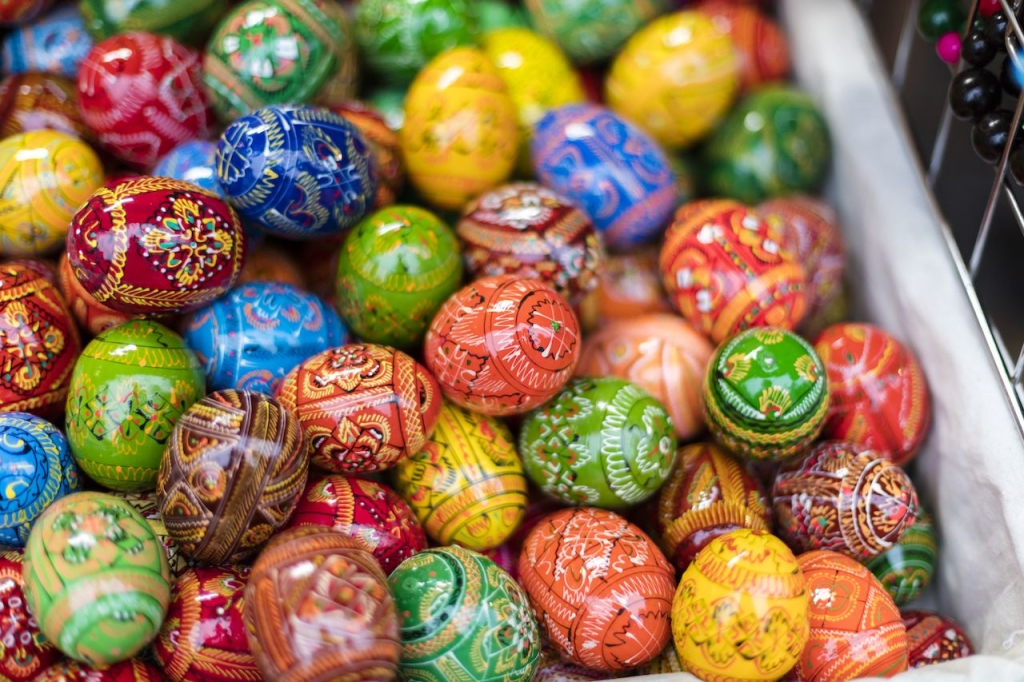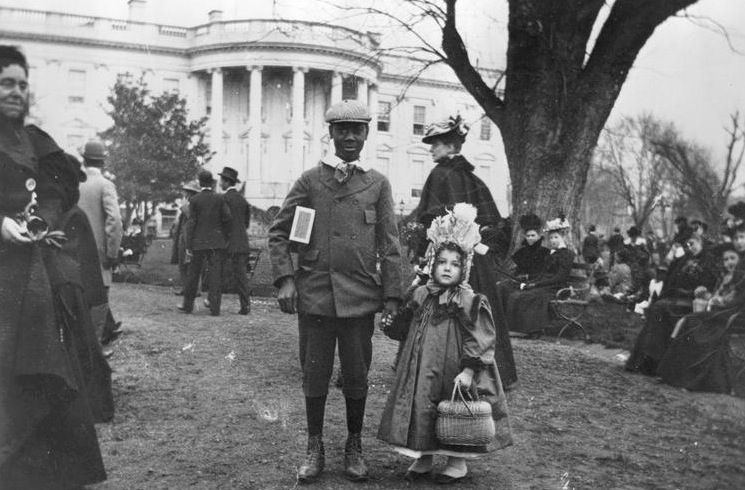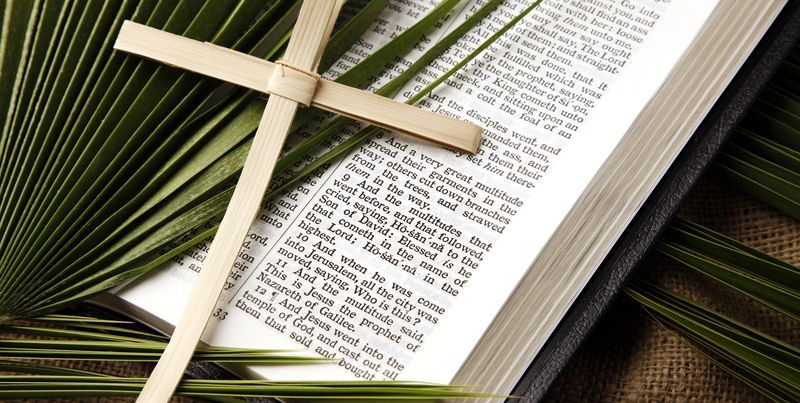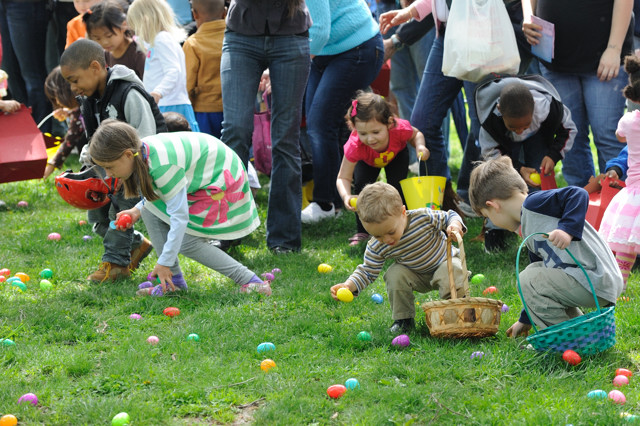“I am the resurrection and the life. Whoever believes in me, though he die, yet shall he live, - John 11:25 ESV
The last part of the Holy Week is Easter Sunday. This is the day that Jesus Christ was resurrected from the dead and descended to heaven. The supernatural resurrection of Jesus is one of the most important moments in Christian history as proves that he is the Son of God. His resurrection is also proof that God is watching everyone.
Celebration of Easter in the Philippines

There are different customs when it comes to celebrating Easter Sunday. In the Philippines, Easter Sunday is called Pasko ng Pagkabuhay. During Easter, Filipinos have the culture of Salubong. Salubong is when images of Christ’s resurrection and Mother Mary’s grievance are paraded through two different processions.
These two images are paraded in different locations but will meet at a certain point. Usually, the meeting place is on the church grounds of a local parish. Salubong is done to reenact Mother Mary’s reunion with Jesus Christ.
The Easter egg hunt is probably the most famous celebration of Easter in the world. In this article, you will know the history and significance of Easter eggs in the resurrection of Jesus Christ.
History of Easter Eggs

The practice of using eggs for celebratory purposes is older than the Catholic church itself as there were 600,000-year-old decorated eggs found in Africa. Early civilizations in Egypt and Mesopotamia also used eggs as a symbol of death and rebirth.
According to historians, the custom of using eggs in celebrating Easter was adopted from Persian and Mesopotamian cultures. Early Christians dyed their Easter eggs red as a symbol of the blood of Christ during the crucifixion. The Christian church officially adopted the custom of using Easter eggs as a symbol of Jesus’ resurrection in 1610.
On the other hand, some sources tell that the origin of Easter originated from the Germanic goddess known as Eostre (origin of the word Easter) during the medieval period. During this time, children go to different houses to ask for eggs before Lent started. These eggs are decorated and were given as a special treat before fasting.
Today, Easter eggs are not necessarily made from chicken eggs. Most Easter egg hunts nowadays are using decorated chocolate eggs or plastic eggs that have candies inside of them. These eggs are said to be hidden by the Easter bunny. After the abstinence from sweets during Lent, Easter eggs are a reward for fasting.
History of the Easter Egg Hunt

The culture of hiding and finding eggs started in the 16th century when Martin Luther, the leader of the Protestant reformation, would ask men to hide eggs for women and children to find. The origin of the Easter bunny started in 1682 when Georg Franck von Franckenau wrote about the Easter Hare in his essay about Easter eggs.
When Queen Victoria of England was a little girl, she enjoyed these egg hunts to the point where it was found that she wrote about this experience in her diary. The diary entry dated back on April 7, 1833, said that “Mama did some pretty painted and ornamented eggs and we looked for them.
Queen Victoria and King Albert continued this tradition with their children. Every Maundy Thursday, King Albert hid eggs in little moss baskets and hid them around the palace. In the United States, the first recorded event of an Easter egg hunt was in 1878 when President Rutherford B. Hayes organized the first White House Easter Egg Roll.
This is a race in which children pushed decorated eggs across the White House lawn. The annual event was held every first Monday after Easter. The White House Egg Roll has no religious significance, unlike most Easter egg traditions.
Are Easter Eggs Mentioned in the Bible?

Easter eggs or the Easter bunny were never mentioned in The Holy Bible. No story in the Bible tells about a bunny placing eggs for good children to find and obviously, eggs have no connection to bunnies because bunnies do not lay eggs. The same goes for Santa Claus and the whole celebration of Christmas.
Just like Christmas, the culture of Easter egg hunts are celebrations rooted in Christian events. The bible does not tell people to celebrate their events. However, the Roman Catholic church celebrates these dates as a reminder of the birth and rebirth of Jesus Christ. It depends on you if you want to participate in these celebrations.
Why is Easter Celebrated?

Today, Easter is one of the main holidays of the Christian community. Easter serves as a happy ending to the fasting and penitence during the Lenten season. Among all the days of the Lenten season, Easter is commemorated as a celebratory holiday because it fulfills the prophecy in the Old Testament.
This prophecy in The Scripture says that God has a plan of saving humankind from their sins. Easter is also a sign of hope that there is salvation for everyone and it is through Jesus Christ himself. Easter is celebrated on the first Sunday following the first full moon after the spring equinox.
In the Christian world, you can say that Easter is the second biggest holiday after Christmas. Some Christian scholars even believe that the celebration of Easter is more important than Christmas because this event redeemed us from our sins. Easter is also the affirmation that Jesus Christ is the prophesized King and Lord of a new earth.
Should you do an Easter Egg Hunt?

An Easter egg hunt is a good way to bond with your kids. This Easter, you can paint eggs together and afterward, hide the eggs around the house. Although Easter eggs are more of a Pagan tradition, there is nothing wrong in celebrating it as long as you commemorate Christ as well. The value that lies in Easter is hope and rebirth. Easter teaches everyone that there is salvation to every sin and every bad event can be replaced with a good one.


